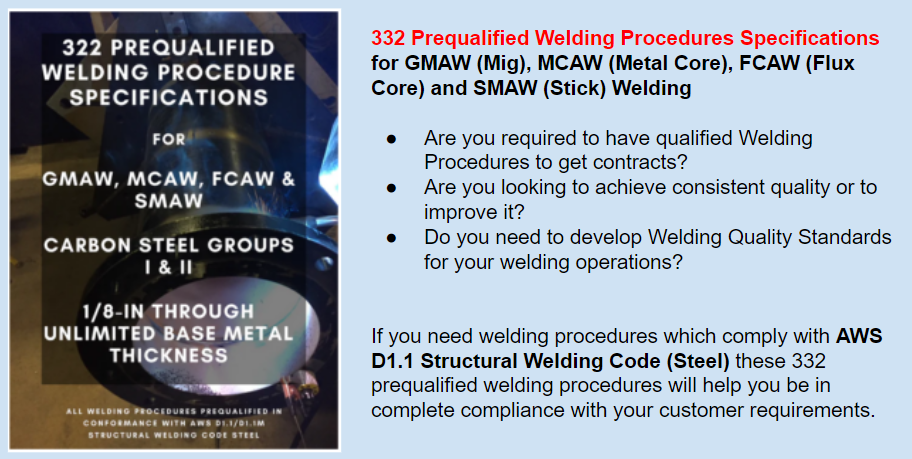
Welding engineering is a complex field that requires expertise in many different engineering disciplines. The welding engineer must take advanced courses in metallurgy (including welding metallurgy), material science, mechanics of materials, thermodynamics, chemistry and fundamentals of all welding processes. Welding engineers are tasked with many different activities which include but are not limited to:
- Selection of filler metals for welding procedure development
- Selection of joints (design)
- Selection of welding process
- Development and qualification of welding procedure specifications
- Qualification of welder performance
- Development of welding quality standards
- Troubleshooting of welding problems
- Optimization of welding procedures
- Selection of welding equipment
- ROI analysis for use of welding automation
- Failure analysis
- and more…
There are many times when those performing the functions of a welding engineer are not welding engineers by education. There is nothing wrong with this, of course. But, many times these people struggle because they don’t have a good knowledge base and rely on tribal knowledge rather than sound engineering principles.
We have worked with many customers that are in this situation. We have found that with properly selected on-the-job training these professionals can be brought to the level expected of a welding engineer.
If you are in this position and would like to know what you should focus on learning, start with the list below. These are not small topics so don’t assume a week will be enough time. A good plan is to spend 2-3 hours a week learning and applying what you learn on your day to day activities.
Here are the 7 areas every aspiring welding engineer should study:
- Arc welding processes (GMAW, SMAW, GTAW, FCAW, SAW, MCAW, PAW)
- Resistance, solid-state and high energy density welding processes
- Design Considerations for Welding
- Heat flow, residual stress and distortion
- Metallurgy/Welding Metallurgy of
- Carbon Steels
- Stainless Steels
- Non-ferrous alloys (aluminum, nickel-based alloys, copper, titanium, etc.)
- Weld Quality
- Discontinuities and defects
- Mechanical testing of weldments
- Nondestructive testing
- Codes and Standards
If you are learning on your own, be prepared to do a lot of reading. If you rely on videos posted on YouTube please beware. Most of the information on welding that you’ll find on YouTube is wrong!!!. Please make sure you are learning from videos from reputable resources, for example, look up videos from the American Welding Society, the Edison Welding Institute and from leading manufacturers of welding equipment and consumables like Lincoln Electric, Miller Electric, ESAB and others. When getting information from manufacturers make sure you focus on process basics and not on how their equipment or consumables may solve problems.
References: Welding Engineering, an Introduction by David Phillips

